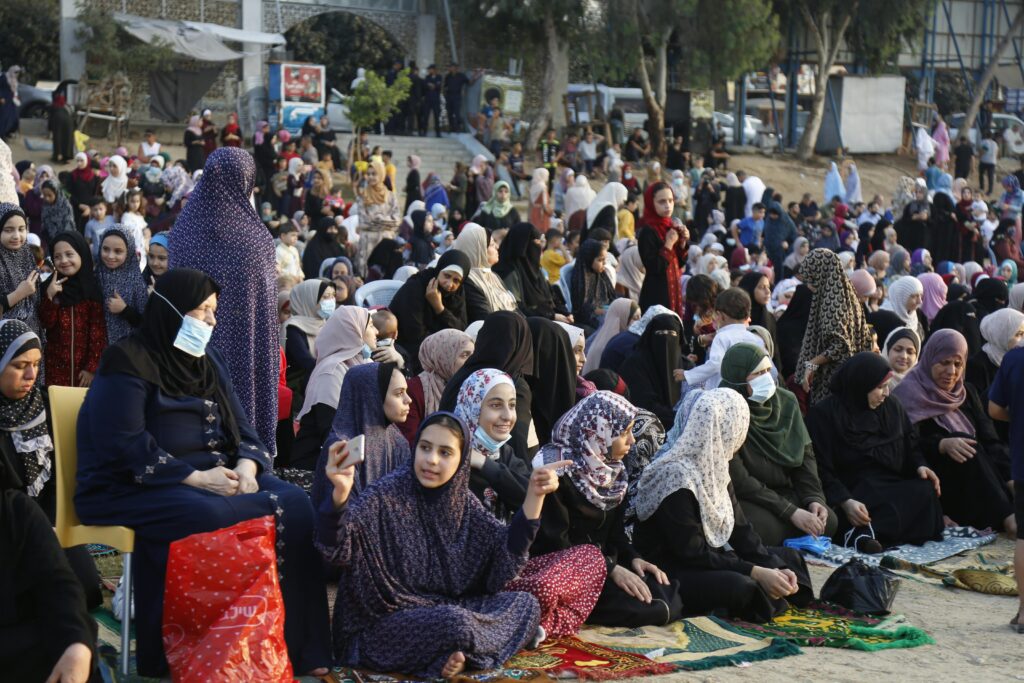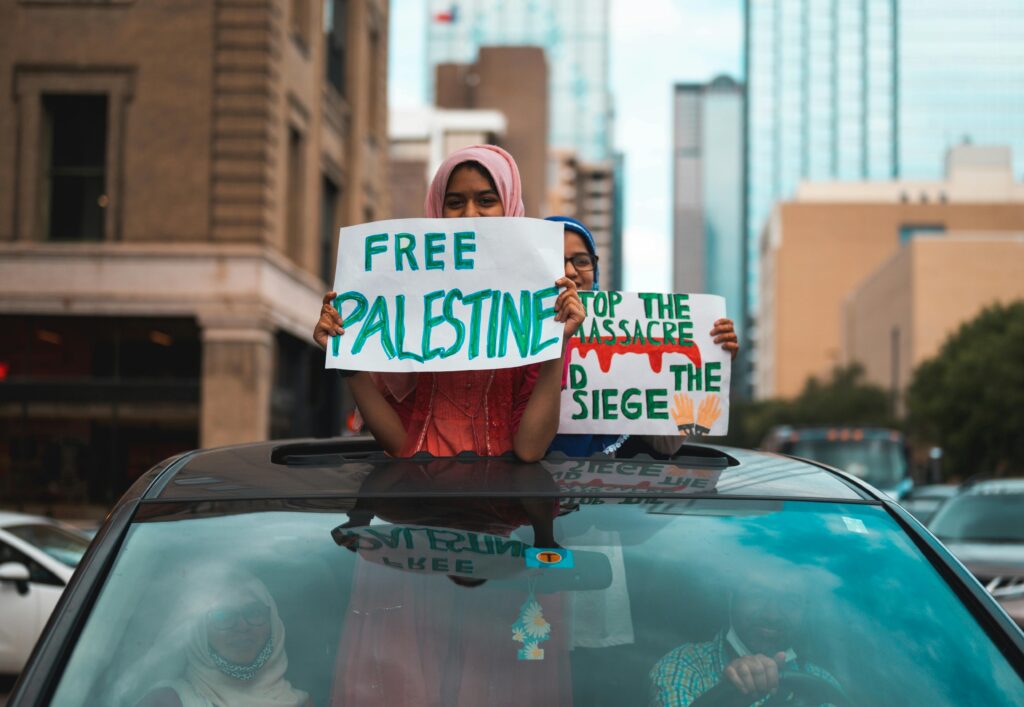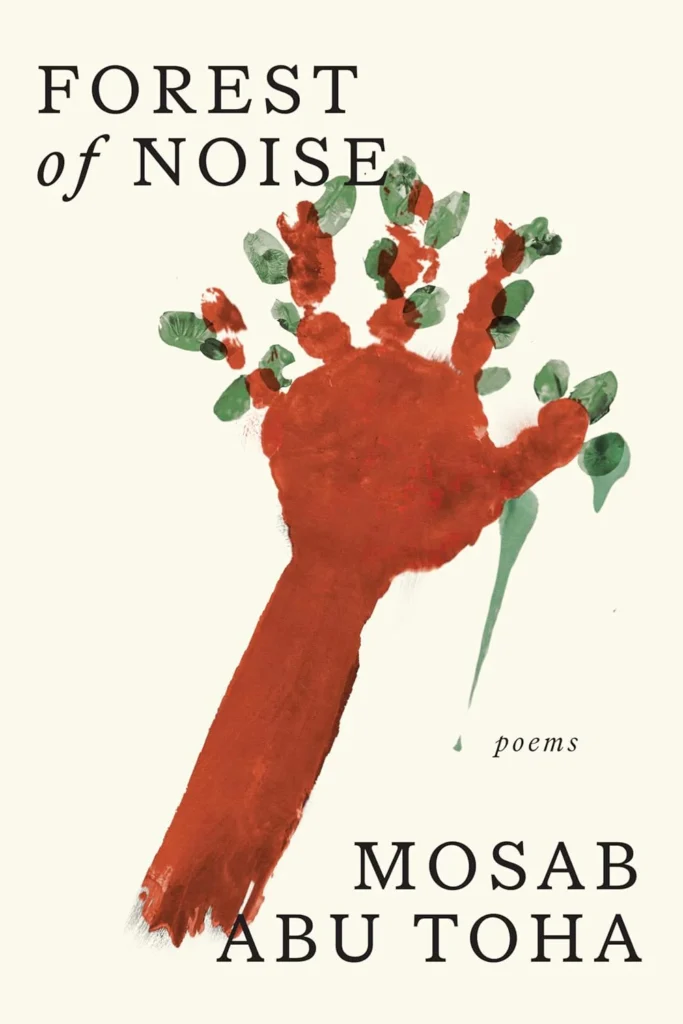“He went out to buy bread and became a flag.”
— from Forest of Noise, Mosab Abu Toha
Sometimes, a book doesn’t ask for a review—it asks for a response. Forest of Noise by Palestinian poet Mosab Abu Toha was one of those books. I picked it up randomly, searching for a shorter audiobook to fit into my week. I had no idea what kind of impact it would have. I didn’t plan to write about it. I just needed to sit with it. But the experience of reading it—listening to it, actually—moved me so deeply, I felt compelled to say something.
I’m sharing this post in November, a month marked by remembrance and urgency. November 29 is the International Day of Solidarity with the Palestinian People, established by the United Nations. This felt like the right time to share my reflections—not as an expert, but as a reader sitting with grief, humanity, and hope.
I borrowed the audiobook through Libby from my local library and listened to Abu Toha read his own work. His voice is calm but layered—grief, memory, love, exhaustion. It adds another dimension. The cracks in his voice, the pauses between lines—they immerse you in Palestinian life and culture. Not just the horrors, but the beauty, the resilience, the rituals of everyday life.
I haven’t read many poetry collections. But this one reminded me how powerful poetry can be when it’s grounded in lived truth. There were moments where I had to pause mid-poem just to breathe. I felt immersed—not just in the horror, but in the humanity.

Lens on Story
This isn’t a traditional narrative, but it has a rhythm and structure that feels purposeful. The story is collective as much as it is personal. In Forest of Noise, Mosab Abu Toha captures the realities of living under siege in Gaza, told through fragments—of memories, of observations, of moments suspended in time.
Some poems zoom in on a single act, like buying bread or salvaging books. Others stretch across the landscape of war. And yet, they never collapse into despair. The story here is not only of what’s been lost—but what endures. The cadence is often quiet. The imagery sharp. You don’t read this collection to escape; you read it to bear witness.
This book invites you into a story still unfolding. Each poem is a page torn from a daily life filled with danger, tenderness, and memory. It resists closure, because the conflict hasn’t ended. In that sense, the storytelling becomes a form of resistance—a refusal to be forgotten.
Lens on Big Ideas
Forest of Noise doesn’t just speak about violence. It asks us to confront what it means to live a full life in the face of it. It holds questions about loss, dignity, legacy, and erasure.
It’s a book that resists flattening Palestinian life into a headline or a soundbite. Instead, it insists on the fullness of being: laughter, sorrow, study, routine, faith. It documents survival—but also longing, ritual, joy.
There’s one line that stuck with me:
“He went out to buy bread and became a flag.”
That transformation—from a human to a symbol—says so much about how people in war zones are mourned publicly but often forgotten privately. This book doesn’t let that happen. It returns the reader to the individual. To the emotional landscape.
Abu Toha also invites reflection on how we process conflict from afar. What does it mean to consume stories of suffering? What does it mean to act? This is poetry that prompts ethical questions as much as emotional ones.

Lens on Time & Place
Gaza is not just the setting—it is the emotional and physical core of this collection. Time is elastic here. Some poems take place in the middle of an airstrike. Others unfold in the aftermath—days, months, years after the blast. There is no linear arc, because there is no linear peace.
The poems are filled with detail: rubble, birds, shelves of books, the color of light at dusk. There’s a deep sense of place and memory. These are not just war-torn streets—they are homes, classrooms, libraries, gardens. The collection makes space for cultural pride and devastation at once. That contrast is what makes it resonate.
Even the silences—between sirens, between pages—echo with the noise of daily survival. Abu Toha’s vision of Gaza includes both the visible destruction and the invisible labor of maintaining life: of cooking, learning, loving, remembering. It’s textured and haunting.
💬 Lens on Reflection
For me, immersion is everything. Whether I’m in a museum or reading a book, I gravitate toward work that draws me in so fully that I can hear the wind in the trees, smell the spices in the air, feel the light on my skin.
Forest of Noise gave me that experience. Even in its most harrowing moments, it brought me close. I could hear the drone in the sky, feel the dust, see the overturned tea cups. And I could also feel the quiet resistance in continuing to read, to write, to remember.
I know the situation in Gaza is complex and deeply political, shaped by decades of conflict, trauma, and displacement. I’m not here to untangle the politics. I’m here to bear witness. This book reminded me of something simple but essential: every person deserves dignity, safety, and the right to be seen in full.
This collection reminded me that reading is never passive. Every time we sit with work like this, we choose to bear witness. That doesn’t have to mean posting online or shouting loudly—but it does mean listening closely, learning intentionally, and refusing to forget.
If this book resonates with you, I encourage you to go further. Read more Palestinian writers. Follow visual storytellers. Support independent publishers and bookstores. Let stories lead you deeper.

Book Pairings & Recommendations
If Forest of Noise resonated with you, here are a few deeply immersive books I can personally vouch for:
- There There by Tommy Orange – A novel about contemporary Native American life, community, displacement, and the legacy of violence.
- Wandering Stars by Tommy Orange – A powerful prequel that weaves generational trauma through time and geography.
- The Message by Ta-Nehisi Coates – A searing, personal essay of solidarity with the Palestinian struggle and the universal need for justice.
These works share emotional gravity, cultural specificity, and a deep commitment to storytelling as survival.
Support Four Eye Books
If you appreciate thoughtful, reflective reviews like this one, consider supporting Four Eye Books.
💛 Buy Me a Coffee – Every donation helps cover hosting, design, and accessibility tools for the blog.
🌟 Want to go a step further? Become a monthly supporter to help this project grow sustainably. Your ongoing support helps fund more book features, author interviews, and immersive literary content.
📸 Don’t forget to follow along on Instagram for behind-the-scenes posts, travel adventures, and reading reflections.
Turn the page, take the trip—what new perspective awaits?
Content note: This book includes depictions of war, airstrikes, civilian deaths, and trauma.

